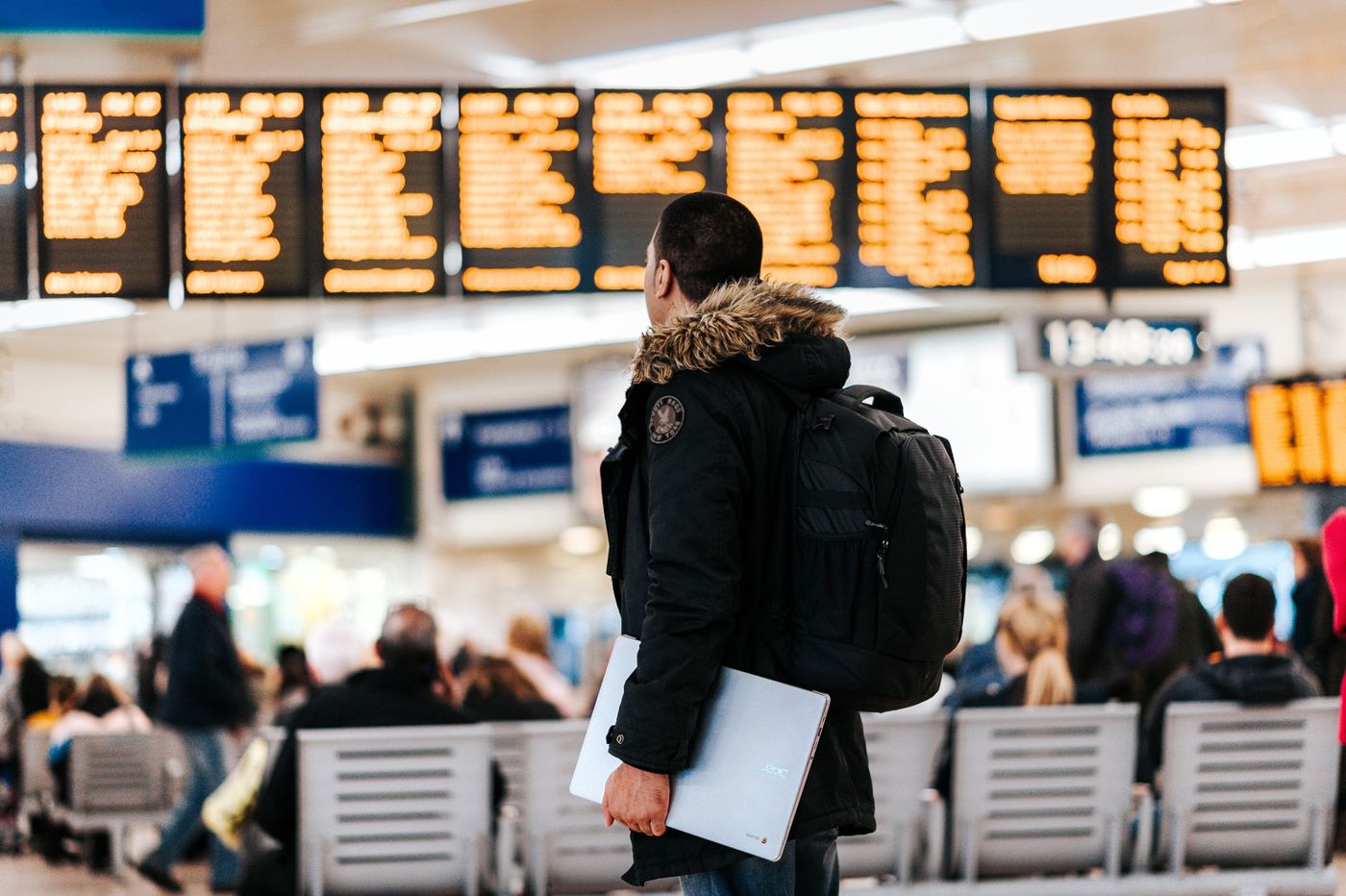[Comment] Ukrainian war made Japan's refugee policy take a big turn? What are the "quasi-refugees/asylum-seekers" that Japan has made with various exceptions?
The state of war has entered its third month since Russia invaded Ukraine on February 24. During this period of time, the Western world and the democratic countries led by Europe and the United States supported Ukraine one-sidedly. In addition to military and material support, various humanitarian aid went to the Ukrainian border to meet the largest refugee flow in Europe. Even Japan, on the other side of the world, has indicated that it wants to receive "quasi-refugees/refugees" of the Ukrainian refugee wave.
As of the 19th of this month, the Japanese government has accepted 664 "quasi-refugees/asylum seekers" from Ukraine. Under the banner of "supporting Ukraine and sanctioning Russia", Japan seems to have changed its long-standing refugee policy from being passive to actively welcoming "quasi-refugees/asylum-seekers", but is this really the case?
What does "prospective refugee/asylum seeker" mean?
At present, when Japanese news alleges that people "choose to flee Ukraine because of Russia's invasion of Ukraine", the most common news term is "refugee". However, since Japanese Prime Minister Fumio Kishida once stated that the Japanese government is considering launching a "quasi-refugee" system for these people from Ukraine, the term "quasi-refugee (system)" has also frequently appeared in the news for some time.
In the case of "escape from Ukraine because of the Ukrainian-Russian war", "refugee" in Japanese is a more appropriate term, and the corresponding Chinese should be "displaced person".
Aside from the Ukrainian-Russian War, the term "refugees/displaced persons" in general is most often used to discuss the situation of "internal refugees/internally displaced persons/ internally displaced persons, IDPs ". These people may have to leave their place of residence due to factors such as civil war, but because they have not left the country, they are still legally protected by their home country, and it is difficult for the outside world to grasp the actual situation, so they need to be discussed separately from the traditionally recognized "refugees". In Japan, because of the Fukushima Daiichi nuclear power plant accident, people who have evacuated in Japan or Fukushima Prefecture are officially called "evacuees" in Japanese.
Back to the term "prospective refugees/asylum seekers". In a Western or Chinese context, we can directly call this group of "people who chose to flee Ukraine because of the Ukrainian-Russian war" as the Ukrainian refugee tide, but we cannot directly call this group of people who came to Japan the "refugee tide" A very fundamental reason is that "refugees" actually have a very strict definition. Those who have obtained refugee qualifications can be called "refugees", and others can only be called "refugee applicants" at most.
If you want to apply for refugee status in Japan, the success rate is low ( only 0.5% ), which is already low to an internationally renowned level. Therefore, when discussing refugees in Japan, it is very necessary to separate "refugee applicants" from "true refugees" who have obtained refugee status. This time, Japan opened a special case for "people who came to Japan from Ukraine because of the Ukrainian-Russian war", and it is also a special channel only applicable to this group of people, so it needs to be separated.
Based on the above reasons, this article uses the term "quasi-refugees/refugees" (hereinafter referred to as "quasi-refugees") to refer to this group of "people who came to Japan from Ukraine because of the Ukrainian-Russian war".

There is no complete package, step by step preferential treatment
Initially, Japan's attitude towards "prospective/asylum seekers" from Ukraine was that if they do not have Japanese nationality, they must have a guarantor in Japan (there are relatives and friends in Japan who can support them), and then they can pass the special program for "prospective/asylum seekers" in Ukraine. The pipeline enters Japan, and the transportation fee to Japan must be paid by itself.
On March 18, the Japanese government eased restrictions again, and even Ukrainian "prospective/asylum seekers" who did not have a guarantor in Japan had the opportunity to go to Japan for asylum. But what to do in practice? How do you get a visa? How to buy air tickets? It's all a mystery. Even if you successfully leave Ukraine and go to other embassies in Japan for help, you may not be able to travel to Japan without Japanese nationality.
A Ukrainian wife who was married to a Japanese but had nowhere to go for help
Olenna (オレナ・ブロバッチ), who married a Japanese and gave birth to a Ukrainian-Japanese child with her ex-husband, told the independent media " Dialogue for People " that her son has Japanese nationality. She still has a Japanese visa that is still valid until the end of April, so when the war broke out, she thought about taking her son and fleeing to Poland before transferring to Japan. However, she has no contact with her ex-husband and her ex-husband's relatives, and there is no way to entrust them as guarantors. Considering that all the travel expenses from Poland to Japan must be paid by herself, she can't let go of her mother and leave her alone in Poland. , he and his son went to Japan and gave up.
On March 18, when the Japanese government announced that it would allow Ukrainians to flee to Japan even if there was no guarantor in Japan, Eulena asked the Japanese embassy in Warsaw many times if she could issue a visa to Eulena’s mother, and also No post yet. Eulena, who thought that it would be impossible to drag on like this, decided to follow the advice of her relatives and friends and went to Denmark from Poland. At least Denmark provides free medical care, local language teaching and monthly money for "prospective/asylum seekers" from Ukraine. aid.
Lin Fangzheng's plane changed Japan's long-standing practice
With her son and mother, Olenna took a 20-hour long drive and finally arrived in Denmark on March 28. Unexpectedly, the day after arriving in Denmark (3/29), I heard the news that the Japanese government would use a special plane to pick up "prospective/asylum seekers" in Poland. After Olenna got the news, she immediately contacted the Japanese embassy and got the news that she would go to the embassy in Warsaw in person on April 1. They had just arrived in Denmark, and their son and mother were both unwell because of the long drive, and it was impossible for them to take another 20-hour drive back to Poland immediately. Olenna now only hopes to settle down smoothly in Denmark with her son and mother.
The news mentioned here is that the Japanese Foreign Minister Lin Fangzheng personally arrived in Poland, and on the way back on April 5, he used the Japanese government plane to transport 20 Ukrainian "prospective/asylum seekers" to Japan. This incident is not only the Japanese government's response to extreme anomalies, but also completely changed and disrupted Japan's consistent approach to the refugee issue. Even if Japan continues to make rolling revisions to the policies and support measures it provides for Ukrainian "prospective/asylum seekers", there is no way to fundamentally resolve the Japanese government's contradictions on the refugee issue.

Ukrainians can't file asylum claims in Japan
The so-called refugees, in a narrow sense, must comply with the Convention on the Status of Refugees (Refugee Treaty), and only those who apply for and pass refugee certification can use the term refugee. Those who have not officially obtained refugee status, but who have filed a refugee application, according to the Principle of Non-refoulement in international law, countries cannot forcibly repatriate the refugee applicant.
According to Japanese regulations, those who want to apply for refugee status must be persecuted by their home country because of their social group attributes such as race, religion, and nationality, or because of political opinions, etc., before they can seek protection in other countries. When a country suffers a military attack from another country and must flee its home country, generally speaking, it is not a condition for Japan to grant refugee status.
To put it simply, it is impossible for this group of "prospective/asylum seekers" from Ukraine to apply for refugee status in Japan even if they come to Japan. Regarding this point, Japanese Prime Minister Fumio Kishida himself is very clear, so he proposed the concept of "quasi-refugees" on April 16, thinking that this group of "quasi-refugees" from Ukraine can not apply for refugee status, from From the perspective of humanitarian aid, the Japanese government should treat them as refugees and provide assistance.
How to deal with the double standard of refugees?
Here comes the problem. Now, under the banner of "supporting Ukraine", the Japanese government wants to create a "quasi-refugee" system for "quasi-refugees" from Ukraine. What should refugee applicants who are not eligible for asylum do? The Japanese government will continue to double-standard, so that this group of refugee applicants will continue to apply the " Entry and Exit Management and Refugee Recognition Law ", which is referred to as the "Immigration Control Law". Don't know when you will be able to obtain refugee status and live normally in Japan?
Extended reading: " Refugee application was deported within the next day, the first foreigner's forced deportation lawsuit was found to be unconstitutional " and " The death of a Sri Lankan woman prompts Japan to reform the "Immigration Control Law" Amendment Abolished "
This time, the Japanese government set a precedent for the Ukrainians. When the Afghan government collapsed and the Taliban took over Afghanistan last year, there were voices calling for the Japanese government to accept Afghan refugees. There are still many disputed areas around the world, including Afghanistan. Should the Japanese government follow suit and pick up people there? Or provide "prospective/asylum seekers" from various countries who have entered Japan to enjoy the same treatment as Ukrainians?
At present, the Japanese government has absolutely no intention to discuss these issues. Although it can be understood and understood, for Ukrainians, these preferential measures introduced by the Japanese government are really a timely rain, but if the Japanese government intends to act stupid for a long time and continue to double standards in the face of the refugee policy, it will be difficult for the Japanese government to suffer from visa issues in Japan. For foreigners who live in China, and support groups that have been providing assistance to foreigners for a long time, it is definitely not a good feeling in my heart.

Exclusive offer for "prospective/asylum seekers" in Ukraine
How good is the Japanese government to the "prospective/asylum seekers" from Ukraine this time?
Let's start with Lin Fangzheng's special plane on April 5. The 20 people who successfully boarded this special plane do not need Japanese nationality or a guarantor in Japan. Basically, they can board the plane as long as they arrive at the embassy in Warsaw in person and have a face-to-face discussion with Lin Fang, so I mentioned earlier. Olenna missed this opportunity. Lin Fangzheng's special plane only flew to Warsaw to pick up people. For other Ukrainians who, like Olenna, escaped from Ukraine and took refuge in other European countries, is there no Japanese special plane?
After Lin Fangzheng's special plane, Japan rolled out various preferential treatments for "prospective/asylum seekers" in Ukraine.
substantial living allowance
According to the latest news released by the Japan Immigration Service on April 11, there is no guarantor in Japan for Ukrainian "quasi/refugee refugees". As long as there is a way to arrive in Japan, initial support will provide them with temporary resettlement institutions (temporary stay in facilities). "Prospective/asylum seekers" from Ukraine are provided with a daily meal fee of 1,000 yen per day for those over the age of 12 and 500 yen per day for meals under the age of 11 during their placement in a temporary resettlement institution. The cash will be paid directly according to the number of days they live in the temporary resettlement institution. Currently, it is planned that these "prospective/asylum seekers" from Ukraine can live in temporary resettlement institutions for up to six months.
When Ukrainian "prospective/asylum seekers" move out of temporary resettlement institutions, each person can also receive a one-time subsidy of up to 160,000 yen (160,000 yen per person over the age of 16, and only 80,000 yen per person under the age of 15). If you don’t have any relatives or friends in Japan, you can get 2,400 yen per person per day for living expenses over the age of 12 (if the family of two or more people arrives in Japan together, the second person’s living expenses are 1,600 yen per person per day), and under the age of 12 Children are 1,200 yen per person per day.
Not only that, during the period of Ukrainian "prospective/asylum seekers" in Japan, in addition to living expenses, medical expenses are also paid by the public sector. If you want to learn Japanese or need direct training, local governments also have special consultation windows. For these "prospective/asylum seekers" from Ukraine, the Japanese government has prepared a public fund of 520 million yen to fully support Ukraine's "prospective/asylum seekers".
Relaxation of quarantine requirements for "prospective/refugee" pet dogs
In addition, the dogs of Ukraine's "prospective/refugee refugees" also became a topic for a time. According to Japan's " Rabies Prevention Law ", if you want to bring cats, dogs and other animals into Japan, you must complete 2 doses of rabies vaccine before entering Japan, and submit relevant inspection certificates when you go abroad; if you cannot submit a blood test for rabies antibodies before entering Japan After entering Japan, pets must stay in the animal quarantine center near the airport for 180 days of quarantine.
Some reports pointed out that the sudden outbreak of the war made it impossible for "prospective/refugee refugees" from Ukraine to test their pets before entering Japan. You must pay for the 180-day quarantine fee for your dog. If you can't pay, the dog will be euthanized. As soon as the report came out, the people felt that this was too cruel. Couldn't they be accommodated? The Japanese Ministry of Agriculture, Forestry and Fisheries had to come forward to clarify that there is absolutely no such thing as euthanizing a dog if the "prospective/asylum seeker" cannot pay.
Japan's Ministry of Agriculture, Forestry and Fisheries also announced on the 18th that dogs brought into Ukraine by "prospective/refugee refugees" can be handled in the same way as foreign rescue dogs (disaster rescue dogs). After entry, as long as the Japanese side confirms that the dogs have been vaccinated, There are also implanted chips, and the health status is ok, so the dog can be with the owner, and there is no need to isolate and observe in the animal quarantine center for 180 days. However, the owner should report the pet's health status regularly during these 180 days, and avoid contact between his dog and other dogs when walking the dog.
Proposed issue of exclusive identity card
Do you think this is the end? The Japan Immigration Service stated on the 21st that in order to make the life of Ukrainian "prospective/asylum seekers" in Japan more convenient, it will issue personal identification cards limited to Ukrainian "prospective/asylum seekers". It is planned to record the name, date of birth, place of residence in Japan, date of entry to Japan, exclusive ID number and personal photo.
The Immigration and Residence Administration said that this is to allow Ukrainian "prospective/asylum seekers" in Japan to smoothly open bank accounts in Japan, so that the Japanese government can allocate subsidies to the accounts of Ukrainian "prospective/asylum seekers".
However, foreigners in Japan know that as long as they are foreigners who hold a medium-to-long-term visa in Japan, they will definitely have a foreigner-specific identification document "Residence Card (Residence カード)". Now the Japanese government issues a 90-day short-term visa to Ukraine’s “prospective/asylum-seekers”, so in fact, as long as the Japanese government directly issues a one-year “special activity” visa to Ukraine’s “prospective/asylum-seekers”, or accelerates Ukraine’s “prospective/asylum-seekers” "Asylum / Asylum" application for renewal of "Specific Activities" review, the Japanese government does not need to issue another Ukrainian "Prospective / Asylum Asylum" ID card to completely solve this problem.

There is no way to completely solve the problem without revising the law
But is this enough? The biggest problem is that there is no complete legal basis for "prospective/asylum seekers", so there is no way to fully protect this group of "prospective/asylum seekers" from Ukraine. The above-mentioned benefits may end up being limited to the exclusive benefits of Ukraine, and there is no way to use them all in one to other foreigners who have to flee their home country because of the war.
If the Japanese government can take this opportunity to revise the law in one go, so that refugee applicants in Japan or refugees from conflict areas can apply these refugee-friendly policies as one, it can really reverse Japan's long-standing status as "refugee-locked country" ”—that is, the negative image of excluding refugees.
Post-Vietnam boat people set a precedent
In fact, Japan is not without experience in accepting refugees on a large scale in the past. The most representative, and arguably the only example, is Japan, which took in about 11,000 refugees from Vietnam, Cambodia, and Laos between 1979 and 2006 .
At the end of the Vietnam War (1975), South Vietnamese refugees first fled to the United States, and then a series of events such as the economic, Sino-Vietnamese war led to the exclusion of China, as well as Vietnam's invasion of the Red Cambodia, led to a large number of refugees fleeing the Indo-China Peninsula in small boats. boat people". Japan only joined the " Convention on the Status of Refugees (Refugee Treaty)" in 1981, and the next year (1982) enacted the "Entry and Exit Management and Refugee Recognition Law", so the first batch of boat people who came to Japan did not have relevant laws. Like this Ukrainian "prospective/asylum seeker", it is a special case.
Medium and long-term planning is required in advance
At present, Ukrainian "prospective/asylum seekers" can enter Japan through a 90-day short-term visa. After entering Japan, if they want to work in Japan, they can be converted into a one-year "specified activity" visa. After successfully changing to a "Specified Activities" visa, not only can you work in Japan, but you can also join Japan's National Health Insurance.
But the question is next: after these "prospective/asylum seekers" from Ukraine have obtained visas for "specific activities", can they continue to apply for renewal of "specific activities" visas after the visa expires? The Japanese government has to decide, in case the Ukrainian-Russian war becomes protracted, or the war has come to an end, but if Ukrainian "prospective/asylum-seekers" who arrived in Japan decide to continue to live in Japan, the issue of visa renewal, And the assistance provided in the medium and long term requires a complete package.

The method of visa conversion after entry is the same as in the past
In all fairness, the visa conversion of Ukrainian "prospective/asylum seekers" after coming to Japan is no different from foreigners who have gone to Japan to seek asylum and a new life for so many years. Long before the epidemic, whether it was because of the civil war in Syria, the civil war in Iran...all kinds of people who suffered from civil war or political persecution, if they wanted to escape from their home countries and seek asylum in Japan, the easiest way is to:
- Entering Japan with a short-term tourist visa
- After entering Japan, apply for admission through a Japanese language school or vocational school, and convert a short-term tourist visa into a medium- and long-term student visa (Extended reading: [Special] Foreign migrant workers in Japan (Part 1) Why do international students become apprentices? )
- During the validity period of the student visa, you can study Japanese while looking for a job, and if you successfully find a full-time job, you can stay in Japan for a long time on a work visa.
- If you stay in Japan for 10 years, you will have the opportunity to change to permanent residency
It is only because of the epidemic that Japan does not open tourist visas, but the 90-day short-term visa provided by the Japanese government to Ukraine's "prospective/asylum seekers" is actually equivalent to the visa on arrival provided to tourists in the past. After entering Japan, asylum-seeking foreigners are bound to find a way to change to other visas or submit a refugee application as soon as possible.
There is a precedent, so it can quickly gather civil forces
Therefore, for the Japanese non-governmental organizations that have provided refugee or foreigner support for a long time, everyone is actually familiar with this set of procedures, which is one of the reasons why the Japanese non-governmental assistance can be effective in the first place.
For example, 40 Japanese language schools across Japan formed the "Ukrainian Student Support Association (ウクライナ Student Support Association)" for the first time, and "prospective/asylum seekers" from Ukraine can study for free if they want to learn Japanese. Japanese language schools will also assist with all administrative procedures and expenses, and some even cooperate with catering operators near the school to solve the problem of eating.
Some are cooperating with local governments and non-governmental organizations. The local governments provide public housing, use the funds of " hometown tax (ふるさとtax) " or open a separate fund-raising project to ensure that Ukraine's "prospective/asylum seekers" live a safe life. Civil society groups provide other life support.
Are the current exclusive offers enough?
On the other hand, according to the current exclusive preferential treatment provided by the Japanese government to Ukraine for "prospective/asylum seekers", only those Ukrainian "prospective/asylum seekers" who have no one in Japan have daily living expenses. For those Ukrainian "prospective/asylum seekers" who happened to have relatives and friends living in Japan and successfully arrived in Japan at the beginning of the war, don't they need support?
What is less noticed is that Ukraine is now promulgating a national military mobilization order, and male citizens aged 18-60 are not allowed to leave the country, so the vast majority of Ukrainians who can now flee abroad are women, otherwise they are under the age of 18. of boys or older persons over 60 years of age. This is actually reflected in the age and gender ratios of Ukrainian "prospective/asylum seekers" arriving in Japan. If you want to settle down and start a new life in Japan, the young and middle-aged people are more able to adapt to the new life overseas, but if it is a Ukrainian male who arrived in Japan with the current system, or a child who still needs the care of an adult, he may be ready to need someone else Caring for the elderly.
" Daily News " reported an elderly Ukrainian couple whose daughter happened to be in Japan, so they were able to arrive in Japan after the war started. However, the couple is over 65 years old, and it is difficult for them to learn Japanese at such an age. They have relatives in Japan, so there is no way to receive the living expenses provided by the Japanese government to Ukraine for "prospective/asylum seekers". In the short term, it may be possible to rely on her daughter to take care of it, but it is not a long-term solution.
The key points that must be paid close attention in the future
Ishikawa Ishikawa, the representative director of the NPO Refugee Support Association (JAR), pointed out that compared with the previous attitude of the Japanese government, Japan is much faster in dealing with the issue of Ukrainian refugees this time, but it is definitely not enough for asylum seekers. She pointed out several issues that must be closely watched in the future:
(1) Will “prospective/asylum seekers” be repatriated?
The Japanese government uses the term "prospective/asylum seeker" instead of the "refugee" used by the United Nations Refugee Agency (UNHCR). This requires attention to whether the "prospective/asylum seeker" provided by the Japanese government is treated as a refugee. For example, in the case of refugees, the authorities will not be able to forcibly repatriate the person concerned. What about "prospective/asylum seekers" in Ukraine?
(2) The emergence of a large number of refugees in a short period of time requires a set of emergency standards
In the case of Ukraine, a large number of refugees appeared in a short period of time. At this time, the authorities had no way to slowly review each case individually, as in the past, and had to introduce a set of standards that should be applied urgently. For example, the European Union (EU) announced on March 4 that all those fleeing Ukraine would be granted temporary EU protection, allowing them to work in the country for up to three years.
What about Japan? In Japan, if you obtain refugee status, you can get a 5-year residence permit. These "prospective/asylum seekers" from Ukraine now only say that they will be issued a one-year "special activity" visa. This visa can be renewed continuously. How many years? These specific mid- and long-term refugee rights protections are still unclear.
(3) To solve the problem of incoherent policies, it should not be different based on the nationality of refugees
This time, the Japanese government has launched various preferential policies in the face of "prospective/asylum seekers" from Ukraine. The Japanese government must fulfill its responsibility to explain the incoherent part of the policy and make the policy coherent.
In Afghanistan, for example, since the Afghan government collapsed last year, many Afghan refugees have been hoping to start a new life in Japan. As of January this year, 521 Afghans have fled to Japan without any life support or support. All of this is the same as in the past, all of which must be borne by the parties themselves, including air tickets, finding a guarantor in Japan first, and handling various living expenses by themselves after arriving in Japan.
Now in Japan, there have long been many foreigners who have fled to Japan from various countries or regions by their own strength and want to seek protection, but these people have never been able to obtain refugee status, nor can they return to their home countries. This has been repeatedly stuck in the refugee application process. After the visa qualification expired, he entered the detention facility, and was released on parole (廮released), so he traveled to and from the detention facility and the world outside the detention facility. He could not work in Japan during his parole period, and he could even maintain a minimum quality of life. question.
Further reading: " The death of a Sri Lankan woman prompts Japan to correct the "immigration control law" amendment
Ishikawa emphasized that refugees should not be "selected" based on their country of origin. Now the various humanitarian responses provided by the Japanese government to Ukrainians must be applied to all refugees seeking asylum in Japan regardless of nationality. We should take this opportunity to revise the current refugee recognition system in Japan and expand the protection of the rights of asylum seekers.
(4) The direction of revision of the entry management law
The Japanese government said on April 7 that it would revise the Immigration Control Act in order to provide protection for asylum seekers fleeing conflict areas like Ukraine's "prospective/asylum seekers". However, the Japanese government was criticized only last year for revising the "Immigration Control Law" . It remains to be seen whether the direction of the Japanese government's current revision of the law can really protect people who have fled disputes and sought asylum.
Ayako Niijima of the Refugee Support Association also emphasized that accepting "prospective/asylum seekers" is not the end, but the starting point. In the future, there will be more and more "prospective/asylum seekers" who do not have any relatives or friends in Japan, which needs to be considered now. Yes, how to create an environment where these people don't feel isolated.
This article is simultaneously published in the Japanese current affairs まとめ translation of Kaori Ishikawa .
Like my work? Don't forget to support and clap, let me know that you are with me on the road of creation. Keep this enthusiasm together!


- Author
- More